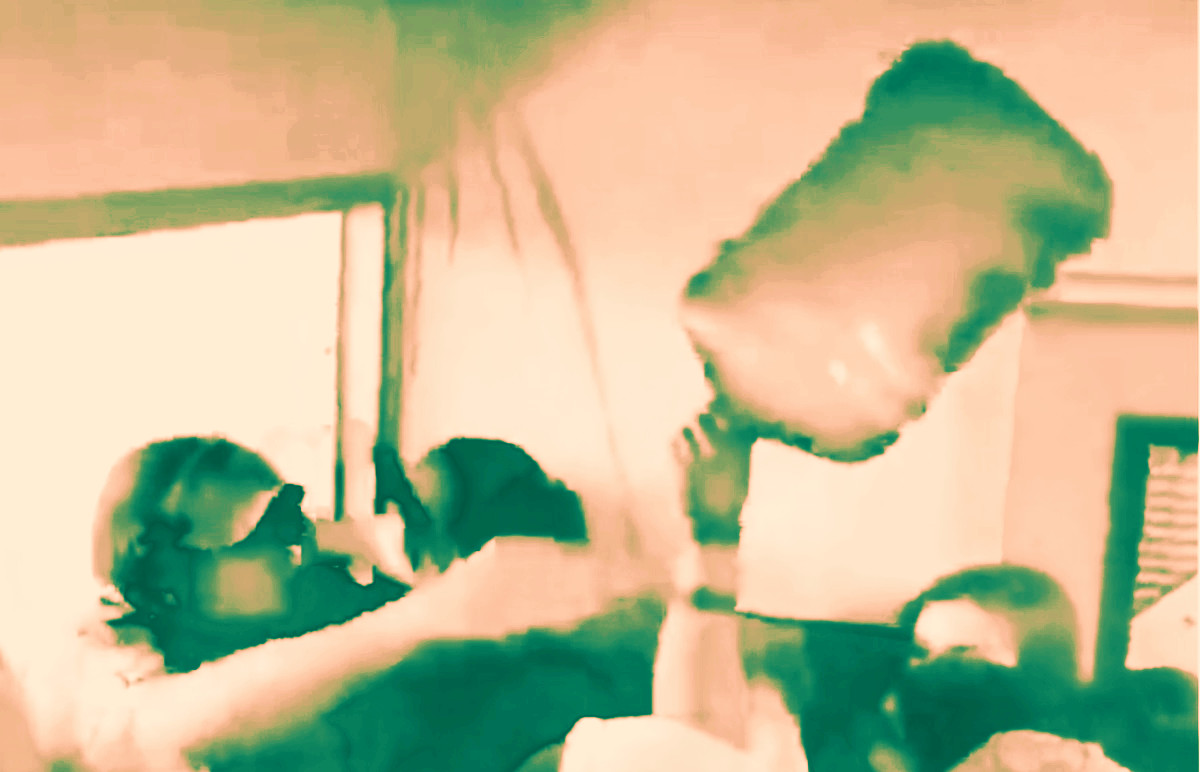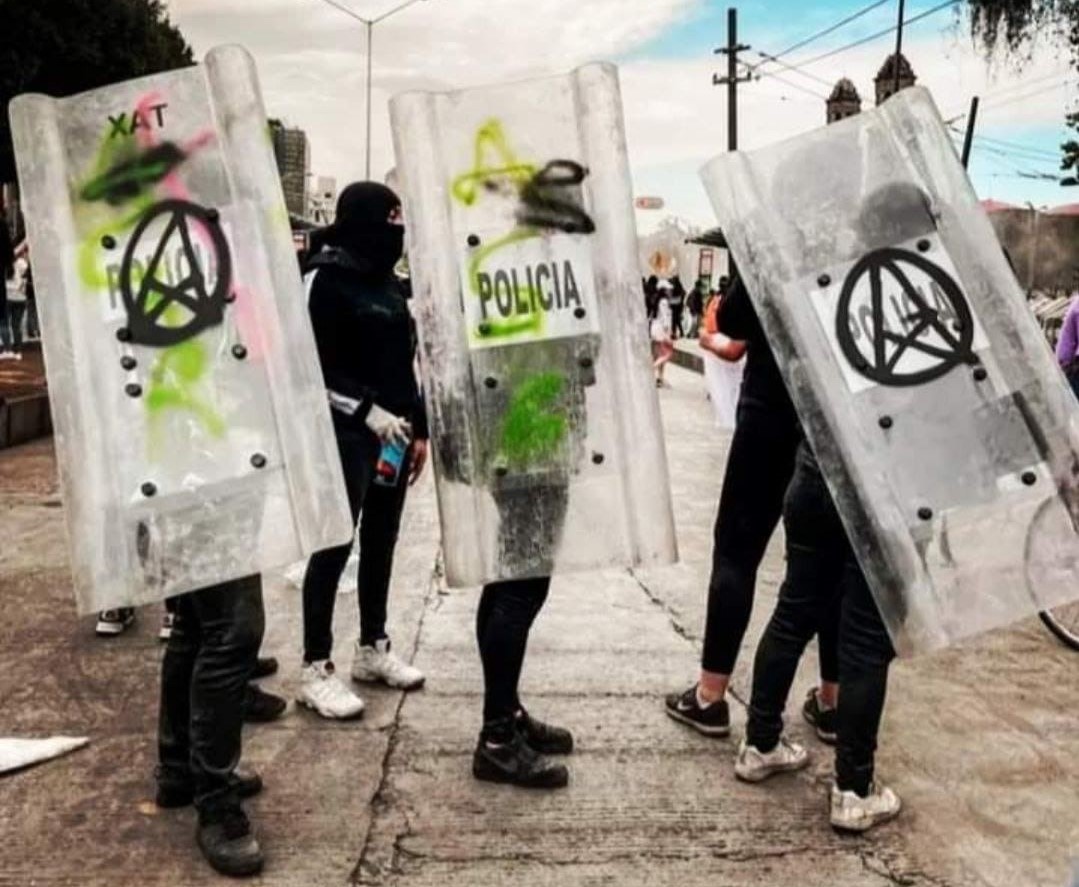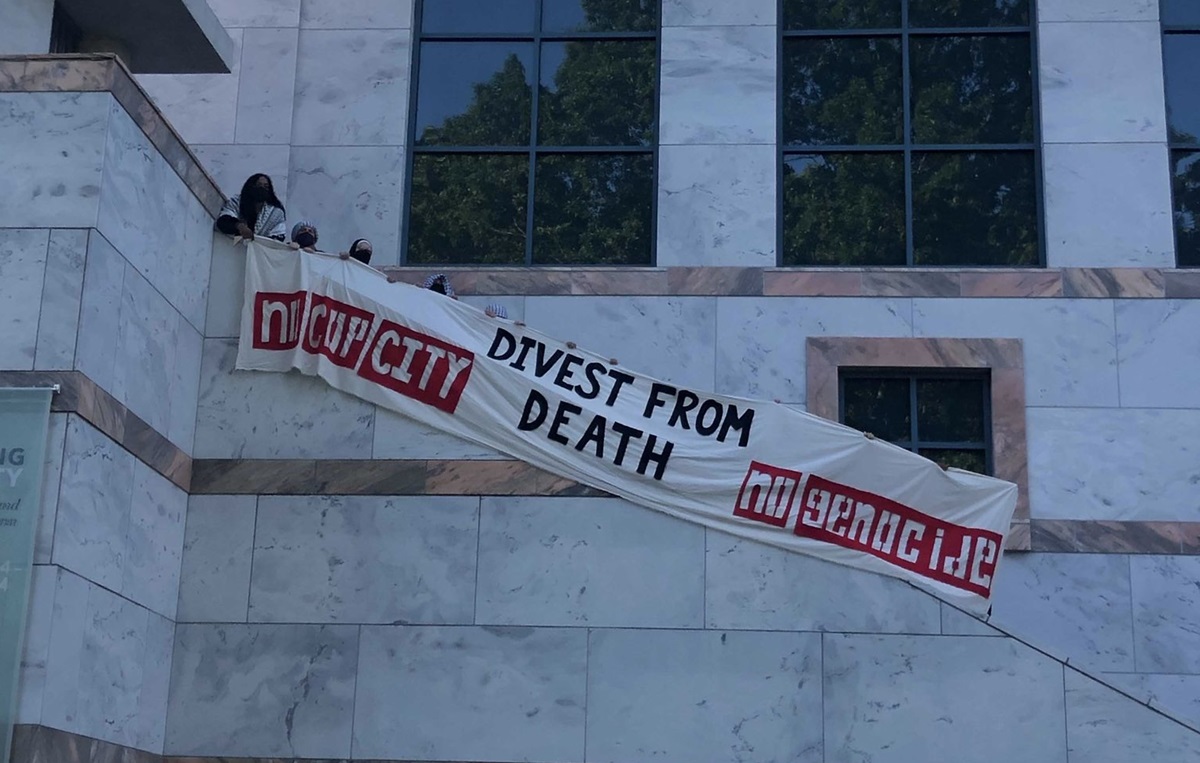Filed under: Action, Anarchist Movement, Disaster, Featured, Southeast
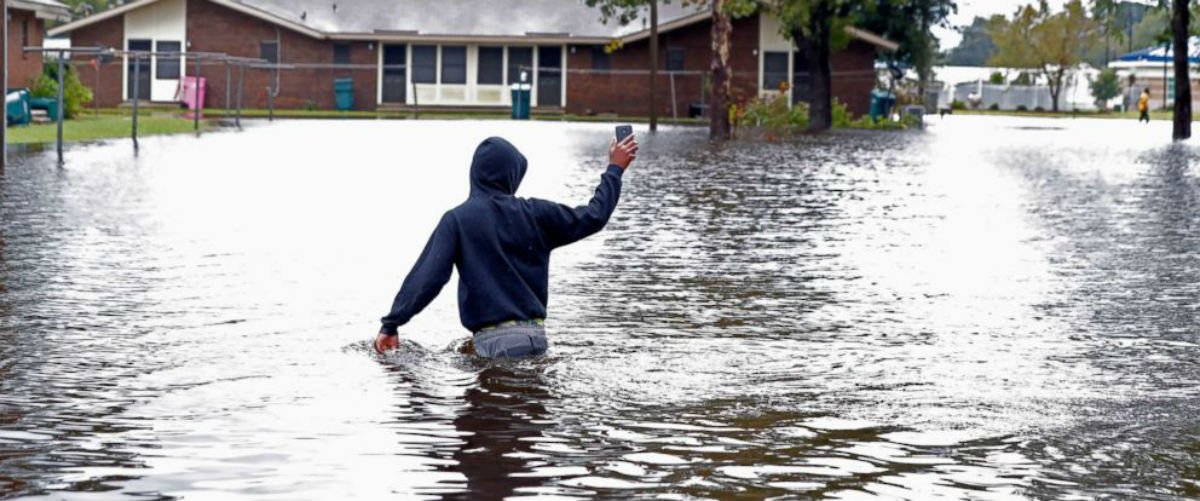
An update from Mutual Aid Disaster Relief about ongoing efforts in areas hit hardest by hurricane Florence.
It’s been over a week since Hurricane Florence hit North Carolina, and floodwaters continue to rise. While power is already coming back in some affluent neighborhoods, the ones we are working in don’t even have enough clean drinking water. In many rural areas, migrant farmworkers were left in camps, surrounded by floodwaters on all sides, while their employers evacuated. Meanwhile, disaster opportunists in the U.S. Border Patrol created checkpoints like this one in Kinston, North Carolina. Earlier this summer, the Trump administration took almost $10 million dollars away from FEMA to fund ICE immigrant detentions and deportations.
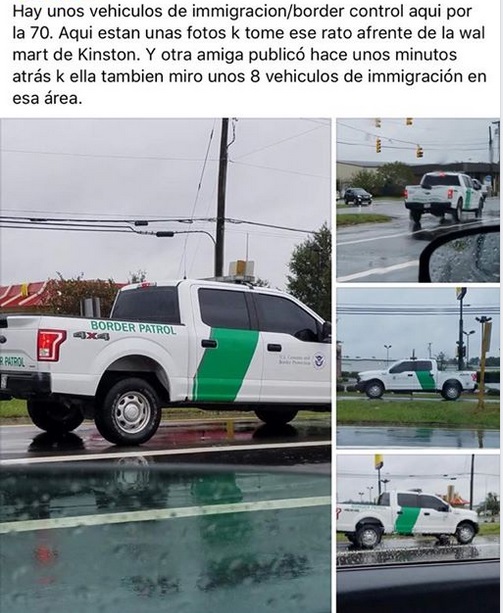
In Lumberton, an Indigenous-led disaster relief effort is coalescing in this rural-majority, Indigenous, Black and Latinx community where many neighborhoods are still underwater and people are still stranded needing basic needs met. Many folks in flooded areas are forced to wade daily through water contaminated with waste from factory farms and coal ash.
And in Wilmington many neighborhoods are dealing with the health effects of collapsed ceilings and roofs. People are already feeling sick from the encroaching mold, fallen insulation, and asbestos from old houses. Downtown Wilmington is currently flooding, and waters are expected to continue to rise from the Cape Fear River. There is so much work to be done alongside folks in Wilmington, Lumberton, and throughout Eastern North Carolina.
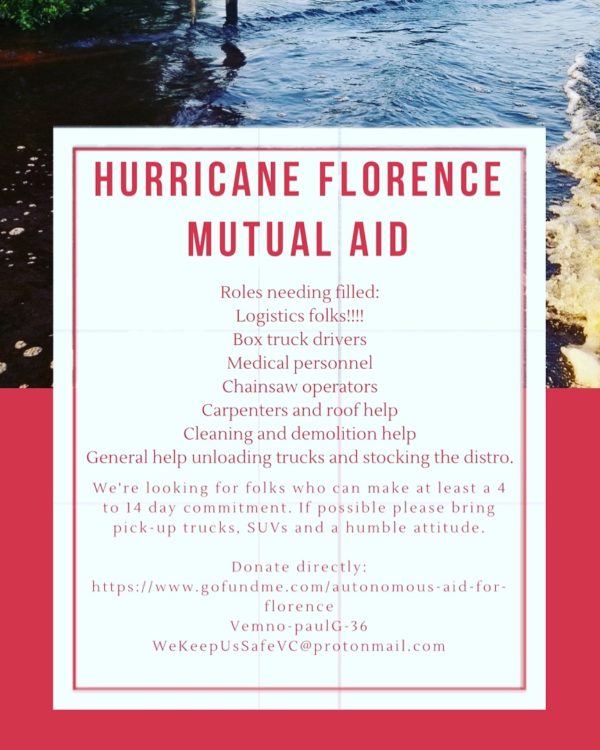
We have seen homes with signs about shooting looters, as well as armed folks setting up neighborhood blockades. All while box stores sit boarded up full of much-needed food, water, baby items, and so much more. Capitalism makes us believe in scarcity, while shelves literally sit fully stocked, waiting to be sold at a profit for those with the means. The neighborhoods we are working in bring Racialized Capitalism, Xenophobic Nationalism, and Settler Colonialism into full view. It is such a vivid example of the hierarchies and oppressions we fight and the need for intersectionality.
In one of the most egregious examples, in Horry County, South Carolina, two women experiencing altered states of mind, Wendy Newton and Nicolette Green, died in floodwaters after being abducted by law enforcement. The officers rescued themselves and sat on top of the vehicle while Wendy and Nicolette drowned inside it. And in South Carolina, officials refused to evacuate prisoners and instead put them to work making sandbags to prepare for the storm’s arrival.
And in this hell, autonomous, decentralized revolutionaries are again coming to the fore, dreaming with their hands — listening, loving, fighting, and utilizing their skills, networks, and quickly-beating hearts to get supplies to Indigenous, Black, migrant farmworker communities, people experiencing homelessness, and others historically neglected and ignored by the state and non-profit industrial complex, standing shoulder to shoulder, working for a #JustRecovery, and reiterating that our hope for a livable future rests, now and always, in each other’s hands.
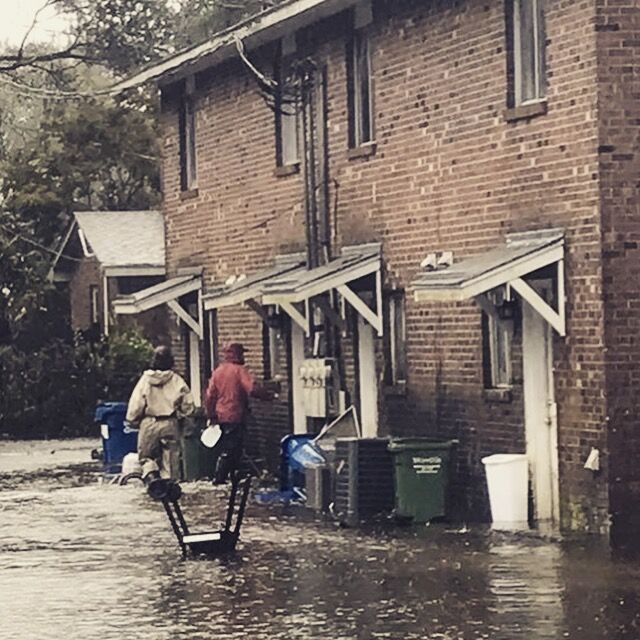
Decentralized efforts by Blue Ridge Autonomous Defense, Interfaith Alliance for Climate Justice, Mutual Aid Carrboro, NC Solidarity Network, Tidewater Solidarity Collective, Appalachian Medical Solidarity, River City Medic Collective, Community Restoration Initiative, Crowd Source Rescue, Operation Airdrop, and Mutual Aid Disaster Relief, have arisen as a beautiful and seamless tapestry of people-powered disaster response. These and so many other organizations, autonomous collectives, and affinity groups have worked tirelessly to carve out spaces for communal recovery and support people’s survival and self-determination. To give a snapshot, in just one day, an awakened people mobilized 55,148 lbs of supplies, for 107 missions, with 66 pilots, at 10 airports to get needed supplies to hard hit, flood surrounded communities.
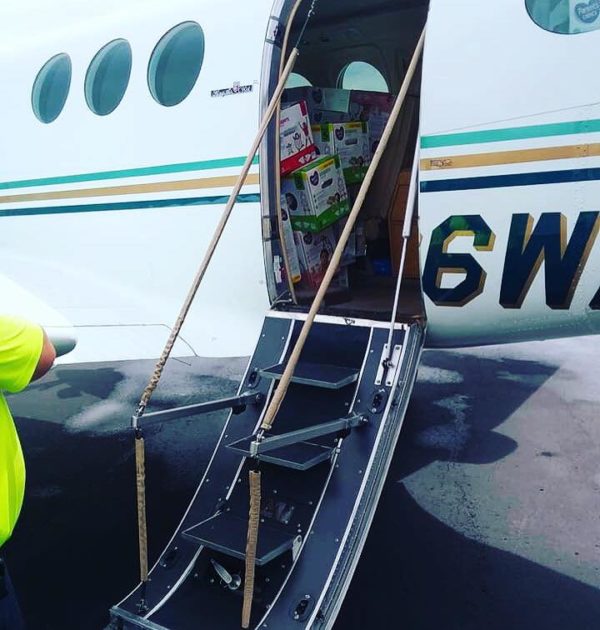
And when the supplies come in, they don’t sit in warehouses, but are redistributed almost immediately to the people, in a way that upholds people’s dignity based on a solidarity not charity ethos.
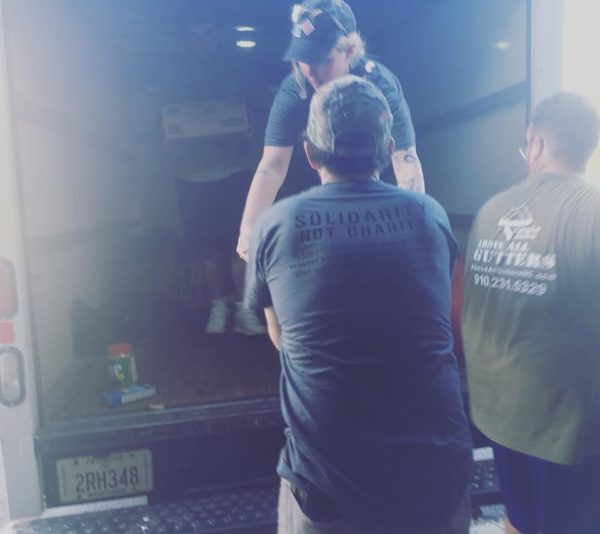
And it didn’t begin here. So many local groups have been fighting the disasters of colonization, patriarchy, and capitalism for years before the very visible disaster of Hurricane Florence. They all deserve support and acknowledgement. Another Gulf is Possible in coalition with North Carolina Climate Justice Collective and other groups have created a clearinghouse of information on Hurricane Florence here with links to some of these frontline organizations. Another clearinghouse of information has been set up by our friends at It’s Going Down.
Our mobile crews deliver box trucks of supplies directly to communities in need. Our other crews are in the community patching people’s roofs, clearing debris, distributing harm reduction supplies, continuing wellness checks, engaging in search and rescue, setting up community cellphone charging stations, as well as much much more, and all the while receiving warm meals, cold water, and strengthening and lasting bonds of friendship from impacted community members who were strangers just two weeks ago. Already folks in the neighborhoods we have been operating out of have mostly taken over running the distros, while we primarily help with the logistics of supplying it.
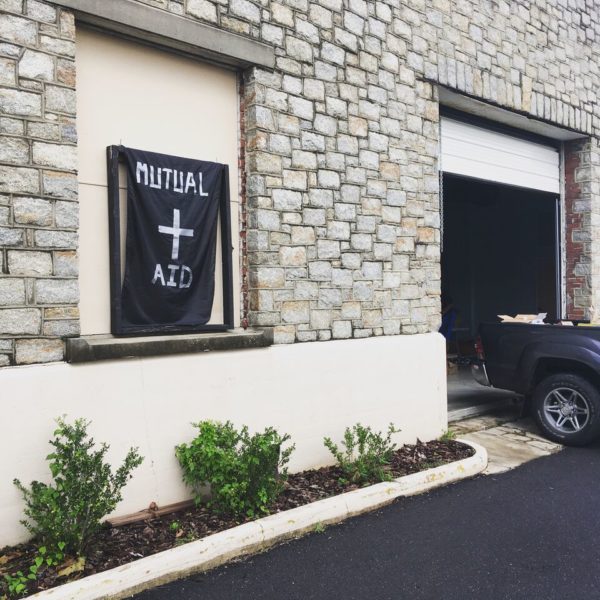
We have created an Amazon wishlist to send supplies directly to impacted communities as well as a growing list of Florence related autonomous and grassroots fundraisers both of which can be accessed here [scroll down].
We believe in a movement of movements that will rise higher than the floodwaters that threaten to drown us all. On quiet days we build the scaffolding of our dreams and sow the seeds. And on stormy ones, among the rains, the winds, and their aftermath, we can hear that movement of movements slowly coming to life.
Can you?


